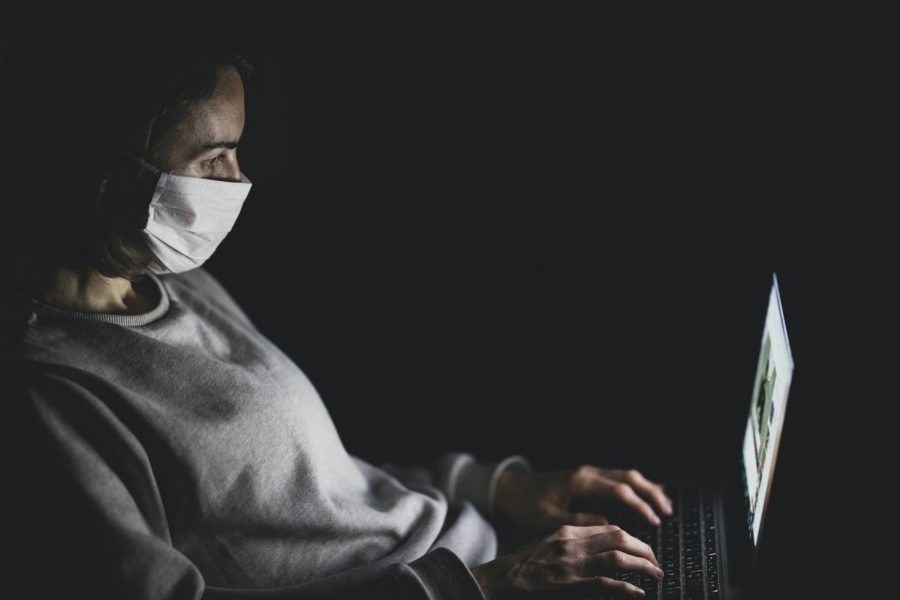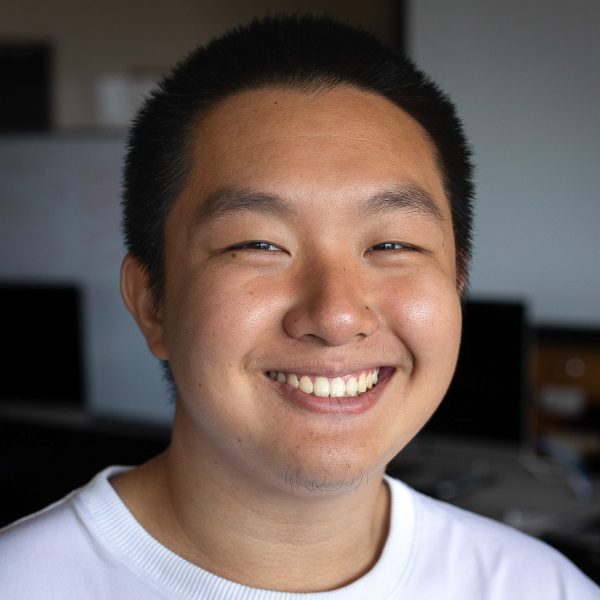Jeremy Lua got the worst surprise on his birthday last year: Covid-19.
“I have had asthma in the past, so it hit me harder than normal,” Lua, a student at CSU Channel Islands, said in an interview last month. “I ended up coughing a lot, and losing my appetite…I had a [sore] throat, I had chest tightness for a good few months after I recovered.”
But he was less worried about himself than he was about his family members, especially his grandfather, who had contracted the virus first, in March.
“My grandpa was on a ventilator for about a week and a half. I video-chatted him when I could, but it kinda was just scary because my grandpa played a really big part in how I grew up,” Lua said. ” He was like a second father when my dad was at work. I wasn’t scared about my health. It was about my grandpa.”
Thankfully, his grandfather was released from the hospital and has been fine since.
“I’m really glad that he’s actually recovered and that nothing happened to him,” Lua said.
Family needs came first for Xaymarie Carillo, who dropped out of school
Xaymarie Carillo, who lives in downtown Los Angeles, said she didn’t contract the virus but she said she faced other challenges.
She was a sophomore majoring in art in Utah when the pandemic hit and it really took a hit on her finances and academics.
“I didn’t have much time available for myself and studies,” she recalled. “I ultimately didn’t do so well on the courses that I took that weren’t necessarily needed for my major but had to take them during the term to follow along with my WUE waiver being an out-of-state student.”
She said she needed a break from college to reorient herself: “I generally felt lost in any general ambitions I had in life and became depressed.”
Carillo decided that what she needed the most was to focus on herself and on family. So, she took a bus back downtown.
Carillo admits that during this period of time, she was struggling to keep a strong face while helping care for her younger brother, a first-grader, and assisting him with his virtual learning activities.
“Making time for the family was quite a difficult experience in the beginning for myself and especially for my younger brother,” she said. “Whether it was technical difficulties or social contact, it was a huge step and bundle of adjustments.”
Anti-Asian hate and lost time with friends concerned Maya Wong
In the beginning of the pandemic, Maya Wong, a college student at UC Merced, wasn’t fazed by it. There were even some benefits like midterms being postponed.
“At first, I was kinda happy about it…up until we had the whole social distance, quarantine, and mask” requirements, she said.
Wong had plenty of odd jobs that kept her busy at home, so mandated stay-at-home rules weren’t a problem. She said she’s an introvert, so she didn’t see any friends of hers until August came around.
It was only after months had passed that she realized how isolated she felt without those relationships and regular contact with her friends.
“My life has worsened because I don’t get to hang with my partner and friends as much,” she said. “Living on my own in my own place was really liberating, but there’s so many ups and downs that right now [it] just seems to plateau.”
She also felt her concerns about anti-Asian hate weren’t covered well or consistently by the press and the stands that institutions and companies took didn’t feel sincere.
“The media never cared about Asian lives until the massacre in Atlanta and even that is dying down. I feel like it’s just been super performative during the pandemic from higher-ups in education [and] brands,” she said.
Hopeful for the future
Despite some continuing obstacles, Lua, Wong and Carillo said they’re hopeful for the future, especially as more people get vaccinated and businesses and schools open up.
Lua said he and his family members are free from the worst of Covid-19 and he’s looking forward to finding a job that will support them.
“I was supposed to go to the Philippines this summer for a museum project,” he said. “Having an actual job [will] help me pay for housing and all the things I want to do.”
Wong said despite the dissolution the pandemic created for her, there were some major upsides: It allowed her to work and intern remotely, which gave her valuable experience.
“I have been able to gain so many other meaningful experiences that would not have been possible. From working for East Coast orgs to flip the state blue to interning in my hometown while working part-time and school full-time,” she said.
Carillo said she found a job recently at a bakery, which has helped her contribute to household expenses and her brother is doing better with his studies and getting used to doing them on his own, freeing up much of her time.
“We are slowly reverting back to some of the normalities before the pandemic outbreak,” she said, adding that she plans to return to her art and on plans to sell her pieces.
“I’ve been able to have some time to re-think my future,” she said. “As not all is seemingly impossible now, I feel as though a [bit] of happiness has been sparked again.”
Community News produces stories about under-covered neighborhoods and small cities on the Eastside and South Los Angeles. Please email feedback, corrections and story tips to UTCommunityNews@gmail.com.








